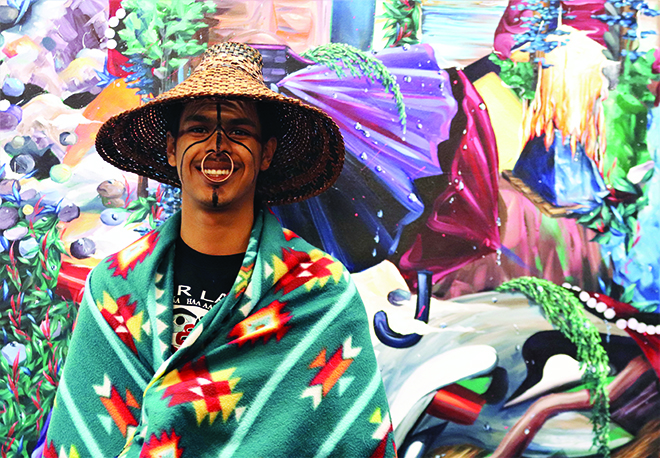
By Micheal Rios, Tulalip News
For the ninth consecutive year, the Pacific Northwest region and its tens of thousands of proud Native American citizens celebrated Indigenous Peoples’ Day on the second Monday in October. Replacing the former ill-conceived holiday dedicated to a slave trader and lost Italian navigator, Indigenous Peoples’ Day serves as a commemoration to honor the sacrifice of the past, the resiliency of the present, and the limitless potential of the future for our shared Indigenous culture.
“People may ask, ‘Why Indigenous Peoples’ Day and why not American Indian Day or Native American Day?’ It’s only appropriate that we honor the legacy of work that’s been done,” said educator Matt Remle (Lakota). His efforts, along with other dedicated Native activists, were instrumental in getting a proclamation voted on by the Seattle City Council and signed into law by then-mayor Ed Murray in 2014. “It’s not only honoring legacy, but when we say ‘Indigenous peoples,’ it’s referring to more than just the tribes of the colonized United States. We’re talking about all Indigenous peoples who’ve been impacted by settler colonialism around the world.”
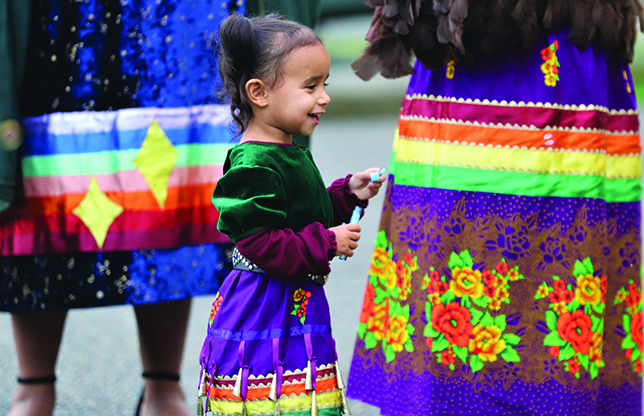
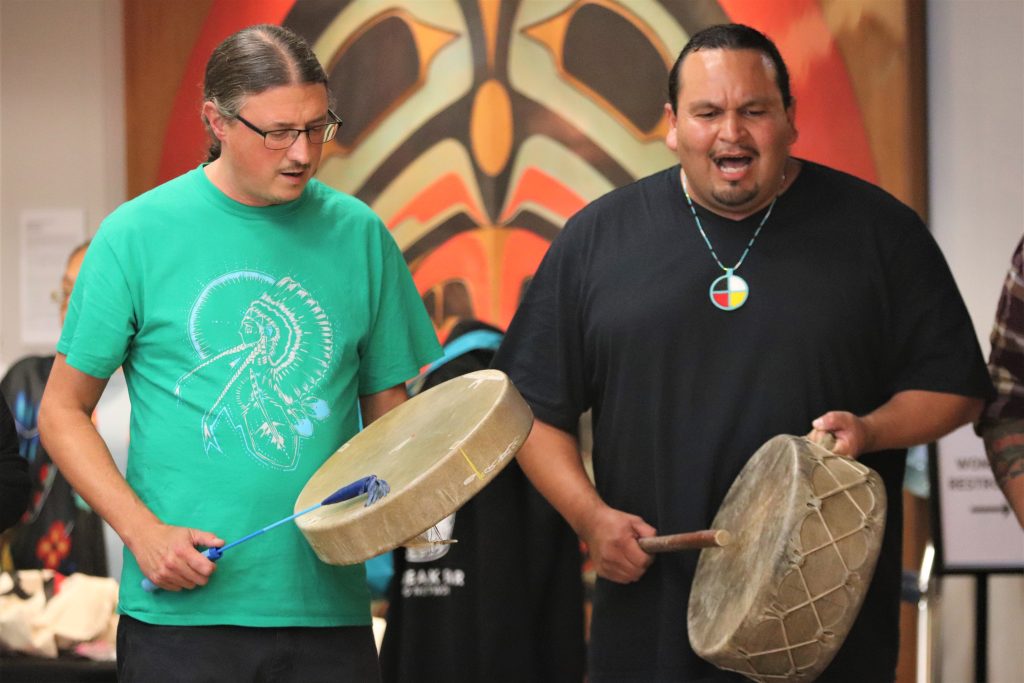
Since its inception into our shared experience, the Indigenous Peoples’ Day movement has spread to hundreds of cities across the nation. It’s been formally adopted by 19 state governments, and even a collection of universities and entire school districts are now including the day to celebrate global Indigenous cultures in their holiday calendars.
The movement has received so much praise, admiration and momentum that it even draws attention from The White House. Imagine that. Just days ago, in the United States capital of Washington, D.C, President Joe Biden from his Oval Office released the following proclamation:
“On Indigenous Peoples’ Day, we honor the perseverance and courage of Indigenous peoples, show our gratitude for the myriad contributions they have made to our world, and renew our commitment to respect Tribal sovereignty and self-determination. They challenge all of us to celebrate the good, confront the bad, and tell the whole truth of our history. And as innovators, educators, engineers, scientists, artists, and leaders in every sector of society, Indigenous peoples contribute to our shared prosperity.
“Their diverse cultures and communities today are a testament to the unshakable and unbreakable commitment of many generations to preserve their cultures, identities, and rights to self-governance. That is why, despite centuries of devastation and turmoil, Tribal Nations continue to thrive and lead in countless ways.
“Today, Indigenous peoples are a beacon of resilience, strength, and perseverance as well as a source of incredible contributions. Indigenous peoples and Tribal Nations continue to practice their cultures, remember their heritages, and pass down their histories from generation to generation.”
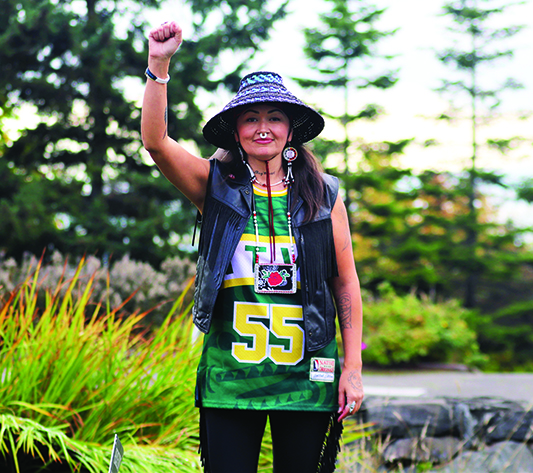
Thank you, Mr. President! When local Native culture bearers and their allies from around the Pacific Northwest gathered at Westlake Park on Monday, October 9, for a march and rally to celebrate Indigenous Peoples’ Day, they were indeed united in culture and honoring a rich heritage. The dedicated early morning group proudly wore cultural garb and traditional regalia while marching with a police escort from Westlake Park to Seattle City Hall.
“I love this moment. Feeling my drum vibrate through my soul, out of my feet into Mother Earth, and back up into my body,” shared Sarah Hart (Tulalip) after marching through Seattle’s urban landscape. “Empowering is an understatement. Being who we are as [Native] people is a way of life, it’s every aspect of who we are and it’s in every fabric of our being. We don’t celebrate the genocide of our people, we celebrate who we are as people. We celebrate together. One heart. One drum. One voice. Together.”
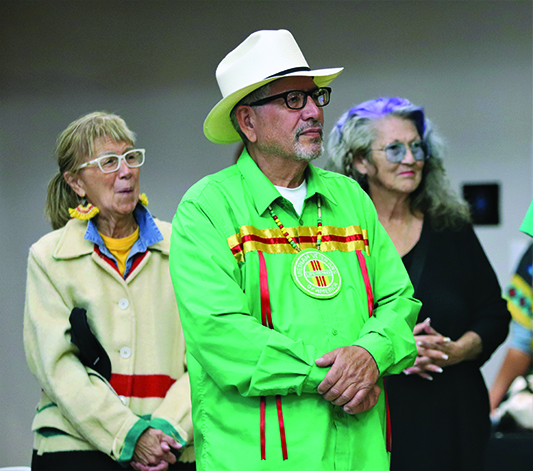
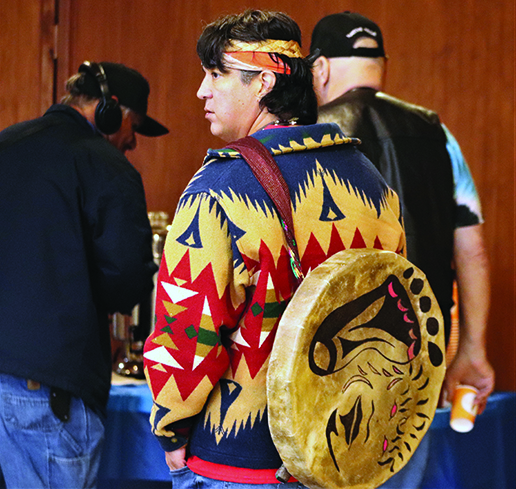
Later that evening, the festivities continued at Daybreak Star Cultural Center with a host of activities intended to celebrate all sovereign nations that comprise Turtle Island. Sponsored by the United Indians of All Tribes Foundation, the Daybreak Star gathering included hundreds of urban Natives, culture bearers from various tribal communities, and non-Natives who wanted to share in the memorable event.
A series of high-energy cultural offerings, representing Indigenous communities across the Americas, kept the multi-generational audience engaged well into the night. From diverse song and dance performances to heartfelt words filled with inspiration and positivity to even a lengthy BINGO session, which the elders loved, that awarded the winners prizes of traditional medicines.
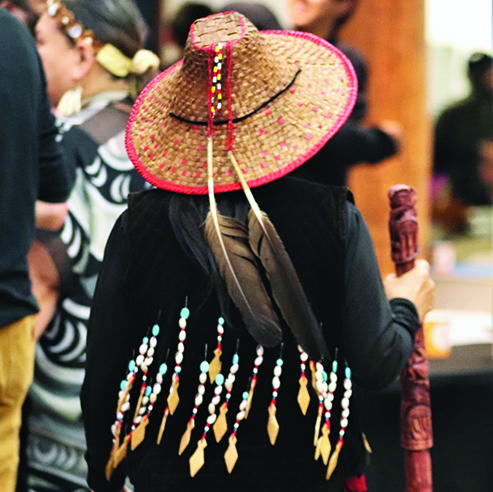
Outside Daybreak, a firepit grill was running at full capacity, in order to cook up enough locally caught salmon to feed all those in attendance. Hard at work manning the grill and ensuring all that salmon was cooked to perfection was Gregory Ebona (Tlingit/Haida). In between sets of salmon, he said, “To be able to provide food and feed all these beautiful people here with us is an honor.”
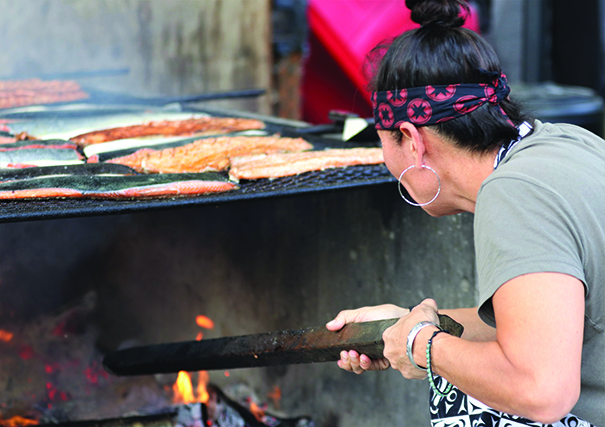
Keeping the outdoor fire going in order to sustain the flame responsible for cooking the food was Deedee Ebona (Tlingit/Haida). She connected her responsibility to keep the fire going with Indigenous peoples’ collective responsibility to keep the culture and our traditional teachings alive. “Being of service to our community is important, as is collaborating with our relatives from other tribes because our ancestors sacrificed so much to ensure their teachings, their culture would live on through us,” she shared.
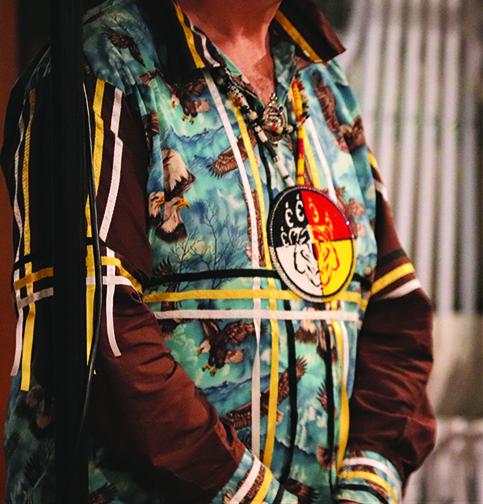
Daybreak Star’s evening-filled celebration paid tribute to a still thriving, still resilient culture that was once on the brink of extinction as a result of genocide, colonization, and termination acts. The shared sense of pride and glorious Indigenous identity radiated off those in attendance only amplified with each passing song, each inspirational message spoken, and every hug shared by strangers, who in that moment became family.
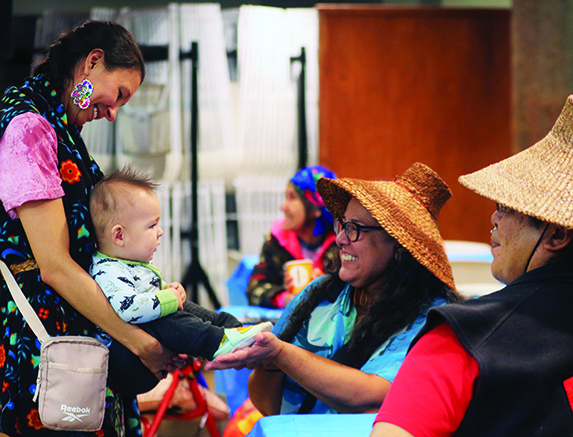
Therein lies the true beauty of being Indigenous. It makes every day a great day to be Indigenous.